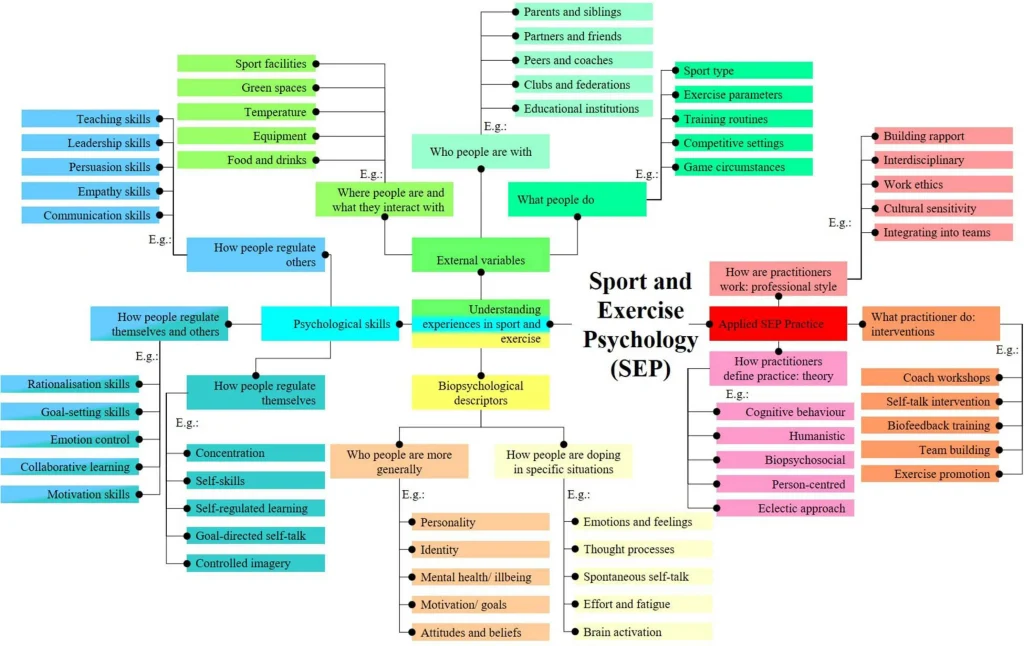Sports psychology reveals how mental processes can lift athletic performance beyond physical training, guiding athletes to perform with greater consistency in competition. A stable mindset, steady motivation, and well-tuned routines help athletes remain calm, focused, and resilient when moments of pressure arrive. Pre-performance routines are practical tools that prepare the mind and body for competition, creating reliable starting points even under nerves. Smarter preparation in practice translates to sharper focus, faster recovery, and enduring confidence across a demanding season and evolving opponents. By integrating evidence-based strategies, athletes can unlock a credible edge and enjoy sport more while sustaining long-term performance gains.
Looking at the field through different lenses, this area is also described as the psychology of athletic performance, focusing on how thoughts, emotions, and beliefs influence results. Mental preparation for sport, emotional regulation, and cognitive strategies help athletes maintain composure when stakes rise. Coaches increasingly weave mental skills into training, using visualization, self-talk, and structured feedback to build reliability. This approach sits at the intersection of performance science and physical training, underscoring resilience, motivation, and concentration as partners to technique. In short, the mind and body cooperate to produce consistent effort, smarter decision-making, and enduring commitment to improvement.
Sports Psychology in Action: Mental Toughness and Focus Under Pressure
In sports psychology, mental toughness in sports is the ability to stay calm, confident, and focused when stakes are high. It combines emotional regulation, sustained effort, and rapid recovery from errors, turning pressure into a signal rather than a distraction, which enhances focus under pressure.
Building this edge begins with a growth mindset and repeatable routines. Setting process-oriented goals, maintaining a performance diary, and reframing setbacks as feedback cultivate habits that drive athlete motivation and long-term performance. When nerves spike, quick coping steps—breathing, centering on a cue, or returning to a practiced drill—help preserve momentum and illustrate the sports psychology benefits in practice.
To translate mental toughness into consistent results, integrate mental skills into practice through breath control, visualization, and task-focused self-talk that keep attention on the next action.
Practical Implementation: Pre-Performance Routines, Athlete Motivation, and Daily Training
Pre-performance routines are structured sequences that prepare the mind and body for action, reducing anxiety and sharpening focus under pressure.
Design routines that are individualized but rehearsed in varied conditions, so they stay reliable under nerves. Tie cues to the athlete’s strategy and progress, which strengthens athlete motivation and reinforces consistent effort across practice and competition.
Teams can adopt a common tactical cueing language and pre-performance rituals to build a shared mental framework, showing how sports psychology benefits translate into measurable performance gains.
Frequently Asked Questions
How can sports psychology help build mental toughness in sports and improve focus under pressure?
Sports psychology provides strategies to build mental toughness in sports by developing a growth mindset, confidence, resilience, and composure. Key steps include setting process-oriented goals, keeping a performance diary, and using rapid coping plans (breathing, re-centering on a single cue) when nerves spike. Focusing under pressure is enhanced through a consistent pre-performance routine, attention control training, and practicing both internal and external focus cues so you can stay present and execute under competition conditions. Overall, the benefits of sports psychology include reduced anxiety, steadier performance, and stronger athlete motivation across training and competition.
What practical pre-performance routines and motivation strategies does sports psychology recommend for athletes?
Sports psychology recommends individualized pre-performance routines that typically include a physical warm-up, a diaphragmatic breathing cycle, a short visualization, and a couple of task-focused cue words. Routines should be practiced in varied conditions so they become automatic when nerves rise. For motivation, combine intrinsic and extrinsic drivers, set SMART goals tied to process (drills, repetitions, feedback), and cultivate a supportive motivational climate with clear standards and personal meaning. These practices highlight the sports psychology benefits of improved consistency, greater enjoyment, and better resilience after setbacks.
| Concept | Key Points | Notes / Examples |
|---|---|---|
| Mental Toughness},{ | Managing emotions; sustaining high performance when it matters; components include confidence, resilience, concentration, and composure. | |
| Focus Under Pressure | High stakes demand smooth, consistent attention; know what matters and let irrelevant noise fade. | |
| Motivation and Goal Setting | Intrinsic vs extrinsic motivation; healthy motivational climate emphasizing growth, mastery, and purpose. | |
| Pre-Performance Routines | Structured sequences prepare mind and body; reduce anxiety; align attention; consistency over complexity. | |
| The Benefits of Sports Psychology | Reduces anxiety; aids recovery; supports longevity; enhances team climate and feedback; assists return to play. | |
| Implementation in Daily Training | Start with awareness; build small repeatable mental habits; mental warm-up; journaling; pre-performance routine; self-talk; stress inoculation; intrinsic motivation; seek guidance. | |
| Common Myths | Not only for pros; integrate with physical practice; thinking positively is not enough. | |
| Case Studies and Examples | Breathing to regulate arousal; shared cueing language; pre-performance routine for serve consistency. | |
| Conclusion / Takeaway | Sports psychology provides a practical framework for improving performance by strengthening mental skills. |
Summary
Sports psychology offers a practical framework for improving athletic performance by strengthening mental toughness, sharpening focus under pressure, and sustaining motivation. When integrated into daily training and competition, these mental skills help athletes stay consistent, recover faster from setbacks, and enjoy sport more fully. By blending goal setting, routine development, and constructive self-talk with physical practice, sports psychology empowers athletes to perform at their best when it matters most.

